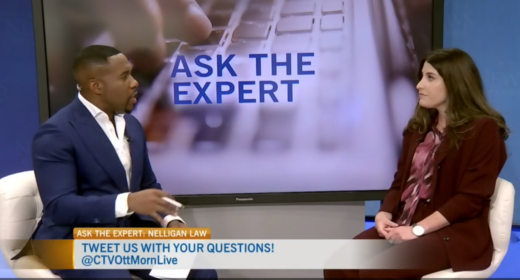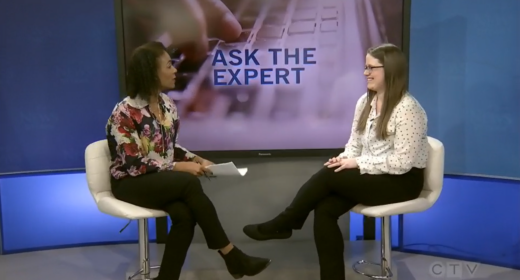What should an estate trustee do if the estate has more debts than assets? Can the estate trustee be liable for the debts of the estate?
You’ve recently been named or appointed an estate trustee, and every article you read on administering estates tells you that you have an obligation to pay all estate debts before distributing the estate to the beneficiaries.
While ascertaining and settling all debts on behalf of the deceased can be onerous in general, the task becomes even more complicated when you find that there are insufficient assets left in the estate to cover all of its debts and liabilities.
If this is the case, you are dealing with an insolvent estate.
Challenge 1: Should you administer the estate?
The first thing to know is that an insolvent estate is not necessarily a bankrupt estate. An estate is only bankrupt if formally declared so and subject to the procedures under the Bankruptcy and Insolvency Act. This can be done at the petition of the estate’s creditors, or at the estate trustee’s own prompting.
There are a few reasons why an estate trustee may want to place an estate into bankruptcy, including:
- Avoiding personal liability: By placing the estate into bankruptcy, a trustee-in-bankruptcy with specialized knowledge in creditor issues takes over the estate’s administration, relieving the estate trustee from personal liability and allegations of overpayments to creditors;
- Increased time and expense administering the estate: An insolvent estate is typically more costly to administer than a solvent one, because of the increased efforts to ensure proper payment and priority to creditors; and
- To change the priority of debts: Some debts are treated differently under the bankruptcy regime. For example, spousal and child support arrears are given higher priority under a bankrupt estate than they are in an insolvent estate, where they share equally with other unsecured creditors.
On the other hand, if the insolvent estate is relatively small and the debts are straightforward, an estate trustee may want to administer the estate themselves. Administering the estate, rather than assigning it into bankruptcy, allows the estate trustee to retain control of the administration, which has the added benefit of helping to ensure family members have an opportunity to purchase estate assets.
Challenge 2: What items are exempt from forced seizure and sale?
If the estate trustee is a spouse, dependent, or family member of the deceased, he or she may have to select which personal items are to be exempt from the reach of the estate’s creditors, as there is a right to retain certain items in insolvency for the benefit of the family.
Pursuant to section 2 of the Execution Act, certain personal items of the deceased can be exempt from seizure and sale. The deceased has the ability to select which personal items to exempt prior to his or her death; otherwise, the decision is made by a surviving spouse, dependent or family member (in that order).
The following personal items can be exempt:
- Necessary clothing of the deceased and his or her dependents;
- Household furnishings and appliances not exceeding the prescribed amount (currently $13,150);
- Tools and other personal property of the deceased used to earn income from their occupation (currently not exceeding $11,300 for most occupations, but the limit is higher if engaged in farming); and
- A motor vehicle not exceeding the prescribed amount (currently $6,600).
The prescribed maximum amounts are set out in a regulation and adjust periodically to accord with the increased cost of living.
Challenge 3: What debts should you pay first?
When administering an insolvent estate, an estate trustee must be cognizant about the order in which he or she pays creditors. Since there are insufficient assets in the estate to pay all debts, a failure to pay these debts in the right order can result in the estate trustee being personally liable to creditors for any unpaid debt.
The general rule mandated under section 50 of the Trustee Act is that all debts in an insolvent estate are to be paid proportionately, without any preference or priority to the nature of the debt, apart from secured debts, such as a mortgage, which receive priority under the Act.
Despite this general rule that there is no priority amongst unsecured debts, the Courts have historically recognized a few exceptions. Debts in an insolvent estate should therefore be paid in the following order:
- Reasonable and necessary funeral expenses, which form a first charge on the estate;
- Testamentary expenses and costs to administer the estate (including compensation for the estate trustee’s care and time, as well as legal fees); and
- All other debts proportionately, including debts due to the Crown.
In paying debts proportionately, an estate trustee is obligated to pay each unsecured creditor a share of the estate’s total assets that is proportionate to their share of the estate’s total debt. For example, if a creditor is owed 15 per cent of the estate’s total debt, they should receive 15 percent of the estate’s assets, whatever that total may be. The idea behind this rule is that each unsecured creditor will get a portion of their outstanding debt.
While the Trustee Act makes it clear that provincial Crown debts enjoy no priority over other unsecured creditors, there is still some ambiguity in the law about whether Federal Crown debts, including federal income taxes, receive priority over other unsecured creditors in an insolvent estate. The case law suggests federal income taxes do receive priority over other unsecured debts, so it would be prudent to obtain the court’s opinion on this issue before paying other unsecured creditors in advance of federal income taxes.
Challenge 4: How can you work with and satisfy the creditors?
Satisfying unhappy creditors is always a challenge in insolvent estates since unsecured creditors will not receive the full value of their debt. One option is to call a creditors meeting and work with representatives of the creditors, called inspectors.
Section 59 of the Trustee Act sets out a procedure whereby the estate trustee may call for inspectors to assist them in realizing upon the assets and administering the estate. This process can help insulate an estate trustee from complaints by a creditor who had the chance to appoint an inspector and participate in the process. However, inspectors do have to be paid, and working with them can complicate the administration process.
Challenge 5: How can you avoid personal liability?
As mentioned, if an estate trustee inappropriately prefers one creditor over another, they can be personally liable for the unsatisfied creditor’s debt. Therefore, while not required, it is often prudent to advertise for estate creditors in the area where the deceased was known to reside and/or have business dealings. Sufficient notice can protect the estate trustee from liability if a creditor later comes forward to assert a claim after the estate has been administered.
Further, if you are unsure as to your obligations regarding payment to a particular creditor, you can apply to the Court under section 60 of the Trustee Act for its opinion, advice or direction on any question respecting the management or administration of the estate’s assets.
Conclusion
Administering an insolvent estate can become extremely complicated due to the number of legislative provisions and common law principles that impose onerous obligations on the estate trustee. If you choose to administer an insolvent estate, rather than place it into bankruptcy, you should seek legal advice to assist you in the administration.
This article originally appeared in the July 2017 edition of Fifty-Five Plus Magazine.



